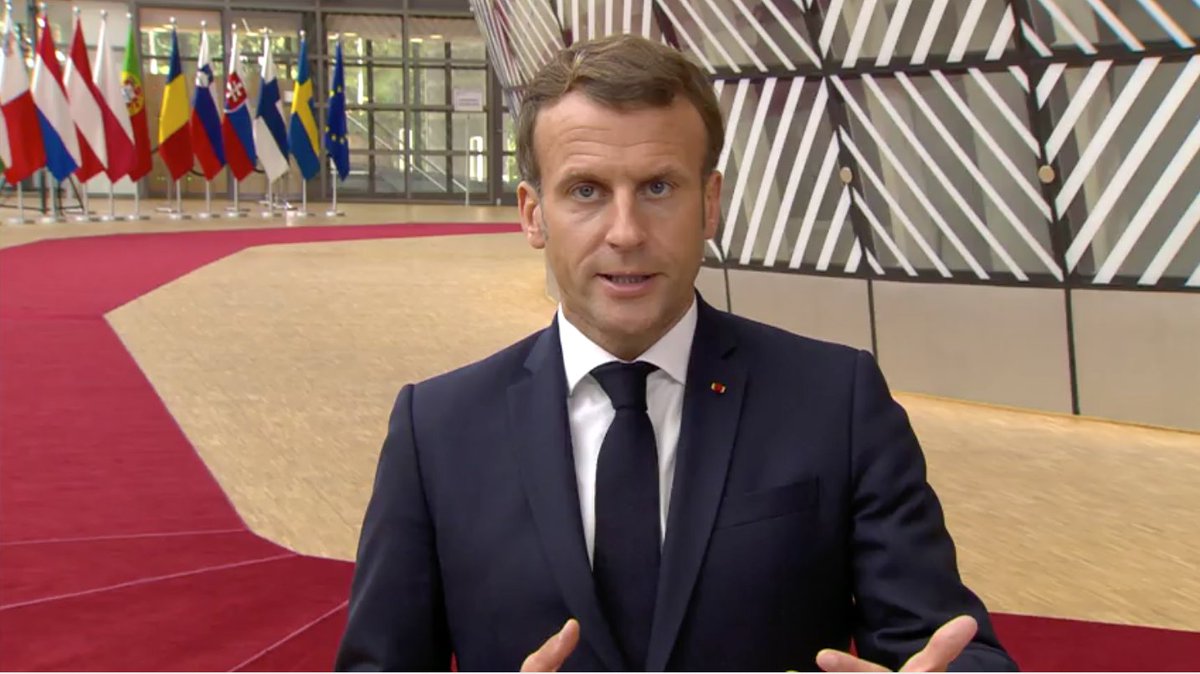
Even countries most exposed to #NoDealBrexit dangers are saying EU shouldn't back down on #Brexit.
Belgium is the 2nd most exposed, but PM @AlexanderDeCroo says in late-night presser that "it would be crazy not to have a deal but it would be even more crazy to have a bad deal".
Belgium is the 2nd most exposed, but PM @AlexanderDeCroo says in late-night presser that "it would be crazy not to have a deal but it would be even more crazy to have a bad deal".

De Croo says this resolve is hardening "more and more" on EU side.
"Granting access of the UK to the European market, if you want to that, then we need assurances on the way the UK is going to play the game".
"Granting access of the UK to the European market, if you want to that, then we need assurances on the way the UK is going to play the game".
Because trust is low (especially after UK made plans to renege on withdrawal treaty), a sanctions mechanism need to be in place if UK violates FTA.
The UK could “possibly have some predatory behaviour which could be very negative for the European economy"
The UK could “possibly have some predatory behaviour which could be very negative for the European economy"
De Croo says that EU shouldn't let time pressure force it into making a bad deal.
Though short-term effects of #NoDealBrexit would be quite bad for the Belgian economy, the long-term effects of agreeing a bad deal would be worse because it would undermine the whole EU market.
Though short-term effects of #NoDealBrexit would be quite bad for the Belgian economy, the long-term effects of agreeing a bad deal would be worse because it would undermine the whole EU market.
If @BorisJohnson's deadline threat strategy was meant to put time pressure on the EU to force it into backing down on its #Brexit position, that strategy appears to have failed at this #EUCO.
So today we await the British prime minister's next moves.
So today we await the British prime minister's next moves.
We're still waiting for a decision from @BorisJohnson after an #EUCO summit that did not go his way.
But comments from @DominicRaab on UK TV this morning suggest Johnson will extend talks: "We are close...with goodwill on both sides we can get there"
But comments from @DominicRaab on UK TV this morning suggest Johnson will extend talks: "We are close...with goodwill on both sides we can get there"
• • •
Missing some Tweet in this thread? You can try to
force a refresh




